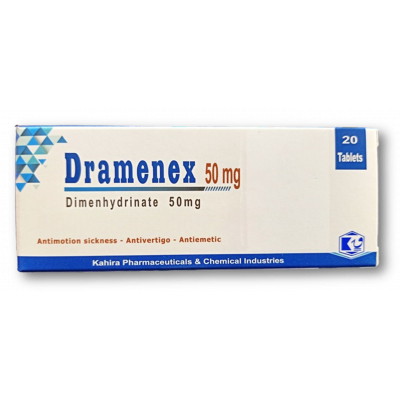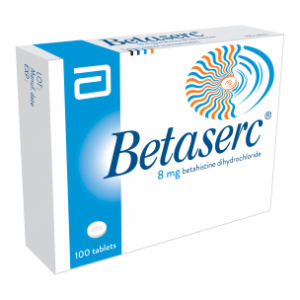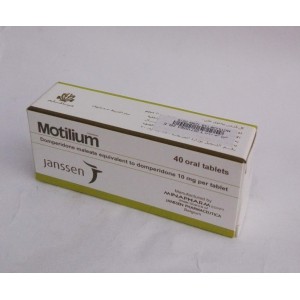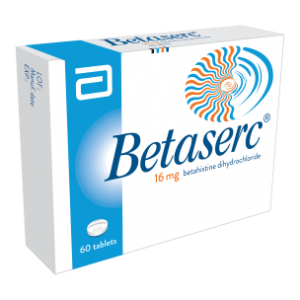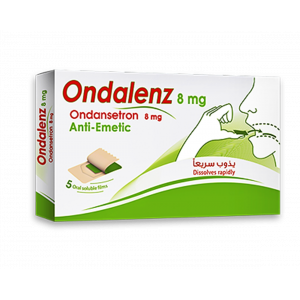- Anti-hestaminic & Respiratory Drugs (20)
- Anti-inflammatory Drugs (192) +-
- Baby & Mom (1278) +-
- Baby & Mom > Bath, skin & Hair > Skin Care > wibes (53)
- Beauty (2738) +-
- Beauty > Skin Care > whitening (273)
- Chemotherapy & Immune Response (855) +-
- Chemotherapy & Immune Response > ANTI-FUNGAL (11)
- Chemotherapy & Immune Response > Chemotherapeutic Agents > Hormone Antagonists >Enzyme Inhibitors (283)
- CIRCULATORY DISTURBANCE AGENTS (23)
- Diet & Fitness Products (272) +-
- DRUG AFFECTING CENTRAL NERVOUS SYSTEM (188)
- HEMATOLOGY (39)
-
Medical Supplies (496)
+-
- Chemicals & Disinfectants (19)
- Dental Supplies (26)
- Devices & Instruments (10)
- Diabetic Supplies (119)
- General Medical Supplies (21)
- I.V & Medical Solution (0)
- Intensive Care Unit & Anesthesia Supplies (0)
- KIDNEY UNIT SUPPLIES (21)
- Lab Supplies (3)
- Miscellaneous (21)
- Neonatal Unit Supplies (0)
- Operation Room Supplies (2)
- Sanitary (5)
- Sterilization Supplies (0)
- Surgical Sutures (4)
- Syringes (3)
-
Medicines & Health (2520)
+-
- Allergy & Sinus (93)
- Children's Health Care (51)
- Cough, Cold & Flu (269)
- Digestive Health & Nausea (220)
- Ear, Nose & Throat Care (176)
- Eye Care (116)
- Feminine Care (319)
- Foot Care (4)
- Orthopaedic Appliances (0)
- Pain Relief & Management (230)
- Pill Organizer (2)
- Skin Treatments (739)
- Sleep & Snoring Aids (0)
- Support & Braces (6)
- Medicines & health > Gout releif (42)
- Natural & Organic Products (82) +-
- OTC > Analgesics > Anti-inflammatory Drugs (45)
-
Personal Care (3076)
+-
- Bath & Body (256)
- Deodorant & Anti-perspirants (179)
- Ear, Nose & Throat Care (172)
- Eye Care (122)
- Feminine Care (366)
- Foot Care (12)
- Hair Care (408)
- Home Tests & Monitorings (14)
- Incontinence (7)
- Lip Care (21)
- Massage & Relaxation (18)
- Natural & Organic Personal Care (7)
- Oral Care (82)
- Pregnancy & Fertility (63)
- Shaving & Grooming (65)
- Sun Care (68)
-
Prescription Drugs (2803)
+-
- Analgesics (182)
- Cardiovascular System (366)
- Drugs Affecting Musculoskeletal System (63)
- Drugs Used In Infections (54)
- Ear & Nose Drugs (2)
- Endocrine System (173)
- Gastrointestinal Tract (235)
- Gastrointestinal Tract > Hepatology > Liver treatment (59)
- GYNECOLOGY (2)
- Miscellaneous (11)
- NEPHROLOGY > URINARY SYSTEM > RENAL DISORDERS > URINARY TRACT DISORDERS (46)
- NEUROLOGY (216)
- Nutrients & Blood Electrolytes (2)
- Respiratory System (149)
- SKIN > NAILS > HAIR > TOPICAL PREPARATIONS (41)
- Vaccines (1)
- Prescription drugs > Cardiovascular system > Anti-hypertension drugs (236)
- Sexual Wellness (293) +-
- Vitamins & Minerals Supplements (1140) +-
Ex Tax: 28EGP
Example
You can return the product within 14 days of purchase.
ReturnsYou can return the product within 14 days of purchase.

Overview: Dimenhydrinate is an antiemetic (anti-nausea medicine) and antihistamine. It is used to prevent or treat nausea, vomiting, or dizziness from motion sickness. The most common side effect is drowsiness. Do not drive or do other activities that require alertness, coordination, or clear vision until you know how dimenhydrinate affects you. Dimenhydrinate is available in multiple forms, including a capsule, chewable tablet, liquid, and tablet.
Uses
What is dimenhydrinate used for?
Dimenhydrinate is commonly used to prevent or treat nausea, vomiting, or dizziness from motion sickness.
Dimenhydrinate may also be used for other conditions as determined by your health care provider.
How does dimenhydrinate work (mechanism of action)?
Dimenhydrinate is an antiemetic (anti-nausea medicine) and an antihistamine. It works by blocking the effect of a substance in your body called histamine. It may also help prevent nausea and vomiting by calming the inner ear and blocking certain chemicals in the brain that trigger nausea and vomiting.
How is dimenhydrinate supplied (dosage forms)?
Brands and other names
- Airmit Ace
- Dramamine
- Driminate
- Gravol
Example dosage forms and strengths
- 15 mg, 50 mg chewable tablets
- 50 mg oral capsules
- 15 mg/5 mL oral syrup
- 25 mg, 50 mg oral tablets
Dimenhydrinate is also available in injectable forms.
How should I store dimenhydrinate?
Oral Products. Dimenhydrinate products that you take by mouth should be stored at room temperature, between 68 F and 77 F (20 C and 25 C). They can be exposed to temperatures between 59 F and 86 F (15 C and 30 C) for shorter periods of time, such as when transporting them. Store in a cool, dry place.
Injectable Liquid. Dimenhydrinate injection is usually given by a health care provider in a hospital or clinic. You will not store it at home.
Side Effects
What are the most common side effects of dimenhydrinate?
The most common side effects of dimenhydrinate are listed below. Tell your health care provider if you have any of these side effects that bother you.
- Drowsiness
- Dizziness
- Dry mouth, nose, or throat
- Blurred vision
- Headache
- Loss of appetite or stomach upset
- Nervousness, restlessness, or trouble sleeping (especially in children)
- Increase in thickness of mucus in the lungs
There may be other side effects of dimenhydrinate that are not listed here. Contact your health care provider if you think you are having a side effect of a medicine. In the U.S., you can report side effects to the FDA at www.fda.gov/medwatch or by calling 800-FDA-1088 (800-332-1088). In Canada, you can report side effects to Health Canada at www.health.gc.ca/medeffect or by calling 866-234-2345.
What are the serious side effects of dimenhydrinate?
While less common, the most serious side effects of dimenhydrinate are described below, along with what to do if they happen.
Severe Allergic Reactions. Dimenhydrinate may cause allergic reactions, which can be serious. Stop using dimenhydrinate and get help right away if you have any of the following symptoms of a serious allergic reaction.
- Breathing problems or wheezing
- Racing heart
- Fever or general ill feeling
- Swollen lymph nodes
- Swelling of the face, lips, mouth, tongue, or throat
- Trouble swallowing or throat tightness
- Itching, skin rash, or pale red bumps on the skin called hives
- Nausea or vomiting
- Dizziness, feeling lightheaded, or fainting
- Stomach cramps
- Joint pain
Decreased Alertness or Coordination. Dimenhydrinate can affect your alertness or coordination. It can also cause blurry vision. Do not drive or do other activities that require alertness, coordination, or clear vision until you know how dimenhydrinate affects you.
Inability to Empty Bladder (Urinary Retention). Dimenhydrinate might make it harder to empty your bladder, especially if you already have a blockage. Stop using dimenhydrinate and call your health care provider right away if you are having trouble peeing or cannot empty your bladder.
Warnings & Precautions
Who should not use dimenhydrinate?
Allergies to Ingredients. People who are allergic to any of the following should not use dimenhydrinate.
- Dimenhydrinate
- Diphenhydramine
- Dramamine
- Any of the ingredients in the specific product being used
Your pharmacist can tell you all of the ingredients in the specific dimenhydrinate products they stock.
Infants. Dimenhydrinate injection should not be used in newborn or premature babies. This medicine can cause serious side effects in these infants.
What should I know about dimenhydrinate before using it?
If dimenhydrinate was prescribed to you by a health care provider, use it as prescribed. If you are using over-the-counter (OTC) dimenhydrinate, follow the instructions that come with the product.
Do not share dimenhydrinate that was prescribed for you by a health care provider with other people, even if they have the same condition as you. It may harm them.
Keep dimenhydrinate out of the reach of children.
There are several forms of dimenhydrinate available. Read and follow the instructions for the product you have and make sure you understand how to use it properly. If you have any questions, talk to your pharmacist or other health care provider.
If you are taking dimenhydrinate liquid, use an accurate measuring device to measure your dose. A household spoon is not an accurate measuring device and may cause you to take the wrong dose. Ask your pharmacist what measuring device to use.
If you are taking dimenhydrinate chewable tablets, they should be chewed or crushed completely before swallowing them. Do not swallow them whole.
Some dimenhydrinate products may have phenylalanine, which can be dangerous for people with a condition called phenylketonuria (PKU). If you have PKU, your body cannot break down phenylalanine. Ask your pharmacist if you have any questions about the ingredients in the specific dimenhydrinate product you have.
People who are 60 and older or those younger than 18 can be at greater risk of some side effects from dimenhydrinate. Talk to your health care provider about your risks if you are in these age groups.
What should I tell my health care provider before using dimenhydrinate?
Tell your health care provider about all of your health conditions and any prescription or over-the-counter (OTC) medicines, vitamins/minerals, herbal products, and other supplements you are using. This will help them determine if dimenhydrinate is right for you.
In particular, make sure that you discuss any of the following.
Current and Past Health Conditions. Tell your health care provider if you have any of the following.
- Breathing problems, such as asthma or chronic obstructive pulmonary disease (COPD)
- Increased pressure in your eyes or glaucoma
- Stomach or bowel problems, including ulcers or blockages
- Bladder or prostate problems, including a blockage or an enlarged prostate
- An abnormal heart rhythm
- Thyroid problems
- Heart disease
- High blood pressure
Other Medicines and Supplements. Dimenhydrinate may interact with other medicines and supplements. Before using dimenhydrinate, tell your health care provider about any prescription or over-the-counter (OTC) medicines, vitamins/minerals, herbal products, and other supplements you are using. See the Interactions section for more details.
Pregnancy. It is not known if or how dimenhydrinate could affect pregnancy or harm an unborn baby. Tell your health care provider if you are pregnant or plan to become pregnant. Your health care provider will let you know if you should use dimenhydrinate while you are pregnant or trying to get pregnant.
Breastfeeding. Dimenhydrinate passes into breast milk. Tell your health care provider if you are breastfeeding or plan to breastfeed. Your health care provider will let you know if you should stop breastfeeding or stop dimenhydrinate.
Interactions
Does dimenhydrinate interact with foods or drinks?
There are no known interactions between dimenhydrinate and foods or nonalcoholic drinks.
Do not drink alcohol while you are using dimenhydrinate. The risk of drowsiness may be increased if you drink alcohol while using dimenhydrinate.
Does dimenhydrinate interact with other medicines (drug interactions)?
Always tell your health care provider about any prescription or over-the-counter (OTC) medicines, vitamins/minerals, herbal products, and other supplements you are using.
In particular, make sure that you discuss if you are using any of the following before using dimenhydrinate.
- An aminoglycoside antibiotic, such as amikacin or gentamicin, which is given by injection to treat certain infections
- Any other medicine that causes dizziness and sleepiness, such as prescription pain medicines, sleep medicines, allergy medicines, or medicines for anxiety
This may not be a complete list of medicines that can interact with dimenhydrinate. Always check with your health care provider.
Overdose/Missed Dose
What should I do if I accidentally use too much dimenhydrinate?
If you or someone else has used too much dimenhydrinate, get medical help right away, call 911, or contact a Poison Control center at 800-222-1222.
What should I do if I miss a dose of dimenhydrinate?
If you miss a dose, take it as soon as you remember. If it is almost time for your next dose, skip the missed dose and only take the next dose. Do not take double or extra doses.
Write a review
Your Name:Your Review: Note: HTML is not translated!
Rating: Bad Good
Enter the code in the box below:

